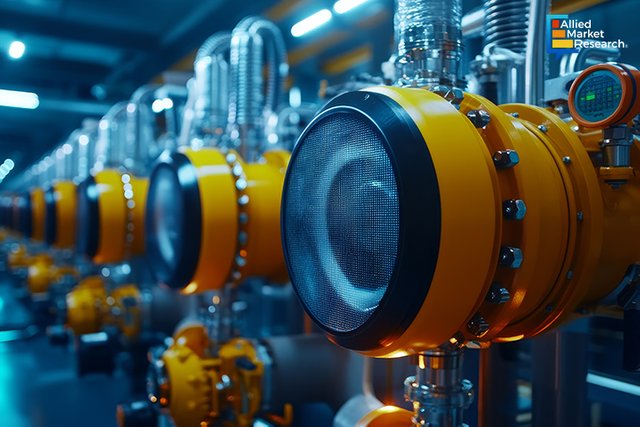The Growing Demand for Desalination Pumps in Addressing Water Scarcity
Desalination pumps are the most important equipment used for the process of converting seawater into fresh water. This process, known as desalination, is significant in areas with limited access to clean water sources. Desalination pumps work in the process where seawater flows through filters and membranes to remove salts as well as other impurities. Besides, the role of desalination technology is becoming more important with the growing impact of climate change and the growth in populations.
Desalination Pumps Industry Overview

The demand for desalination pumps is increasing because they help provide a reliable source of fresh water in regions where natural freshwater sources are scarce. These pumps are used in many industries such as agriculture, drinking water supply and industrial cooling systems. The growth of the global desalination sector is boosting the need for superior and efficient pumps. These pumps are becoming energy-efficient and a low-priced solution for long-term water supply needs. The ability of these pumps to provide safe and clean water is helping to fight against water scarcity across the world.
According to a new report published by Allied Market Research, the global desalination pumps market is projected to exhibit a notable CAGR of 10.1% throughout the forecast period.
Increasing global water scarcity
Over the years, global water scarcity has become a major issue, with over 2 billion people residing in regions going through severe water stress, particularly in areas such as sub-Saharan Africa, South Asia, and the Middle East, according to the UN. Climate change, population growth as well as industrialization are depleting freshwater sources, making access to clean water more challenging. Therefore, desalination technology is emerging as an important solution to deal with this crisis by transforming seawater into potable water that is feasible with the help of desalting facilities, hence providing yet another alternative source of fresh water for usage.
However, these plants depend heavily on efficient pumps to maintain a consistent flow of seawater for processing. Without reliable pumps, the desalination process can be slowed or even stopped, affecting the supply of fresh water. In fact, it is estimated that desalination plants consume about 3-4 kWh of electricity per cubic meter of water, making energy-efficient pumps essential for sustainability. With the rise in the global population and the water resources depletion, desalination, facilitated by advanced pump technology, gives hope to help the world overcome water scarcity.
Advancements in desalination pumps and smart systems enhance sector growth
Governments around the world are supporting desalination as an efficient solution to water shortages by creating favorable policies and regulations. This shift has increased the demand for desalination pumps, thus benefiting manufacturers and suppliers. Many countries have started investing in water conservation initiatives and sustainable development, which include promoting desalination projects and improving water infrastructure. For instance, Israel and Saudi Arabia have emphasized desalination to ensure water security. Moreover, advancements in energy-efficient pumps and IoT-enabled smart water management systems are notably reducing costs and improving desalination plant performance. These innovations make desalination more cost-effective and accessible, boosting the growth of the sector. Consequently, the desalination pumps sector is anticipated to expand, playing a vital role in mitigating worldwide water shortages.
Key innovations shaping the desalination pumps industry
Major industry players are developing cutting-edge technologies, introducing new products, and establishing strategic partnerships to strengthen their position in the market. For example, in November 2022, Sulzer, a global leader in pump solutions, announced the expansion of its product portfolio with the launch of the A-RO and MSN-RO pumps. The MSN-RO pump is a high-efficiency solution tailored for modern, large-scale desalination projects featuring independent reverse osmosis (RO) trains with capacities of up to 35,000 m³/day. This multistage axial split casing pump builds on Sulzer's proven designs in the industry. Its hydraulic section, lubrication system and balancing devices are derived from the MBN-RO pump, whereas its axial split casing, designed for easier maintenance, is inspired by the MSD-RO range.
Wrapping up
The desalination pumps sector is experiencing rapid growth because of increasing water scarcity and the need for freshwater solutions. Energy-efficient and smart pumps, supported by government initiatives, are boosting industry expansion. Moreover, these pumps provide a sustainable solution to global water challenges, offering significant opportunities for reliable and cost-effective water supply worldwide.